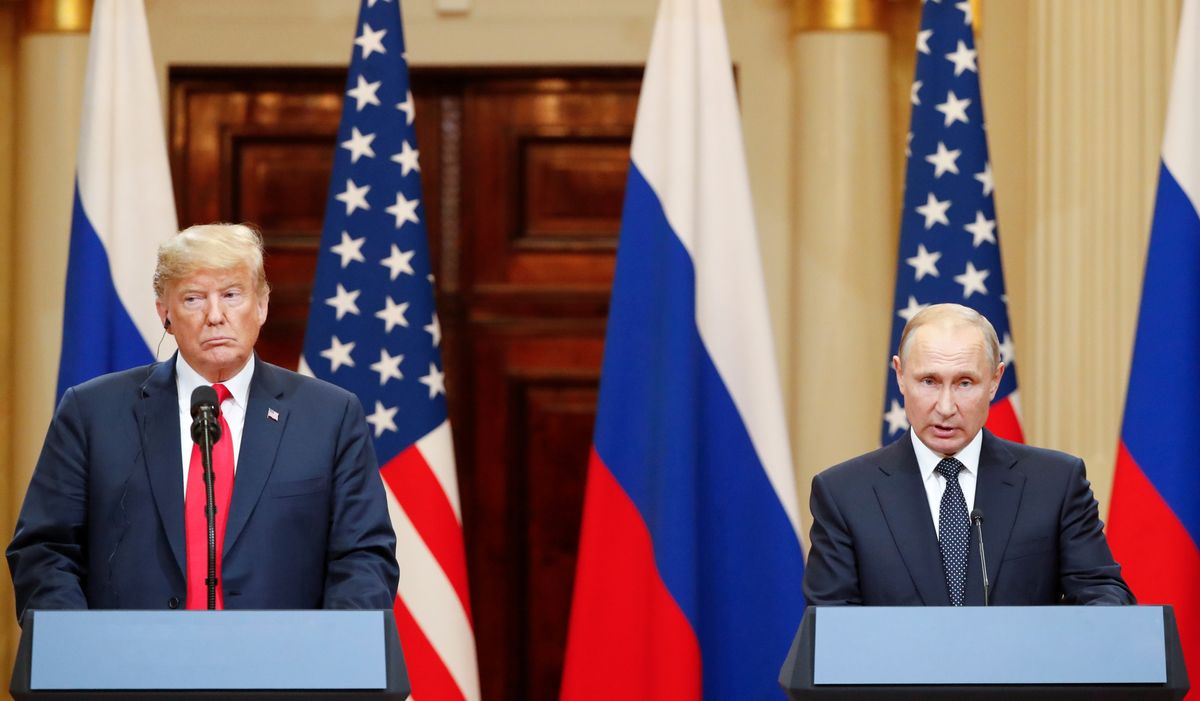It's been a bad week at the office for President Trump. Not only have coronavirus cases in the US been soaring, but The New York Times' bombshell report alleging that Russia paid bounties to the Taliban to kill US troops in Afghanistan has continued to make headlines. While details about the extent of the Russian bounty program — and how long it's been going on for — remain murky, President Trump now finds himself in a massive bind on this issue.
Here are three key questions to consider.
First, what did he know and when did he know it? The media has been abuzz with competing narratives of what briefings President Trump received from the intelligence community, and when he received them.
Some reports say that presidential aides opted not to brief President Trump on the Russian bounties, knowing Trump's propensity to rebuff intelligence that implicates President Putin, with whom he's famously tried to cultivate close ties.
Other reports claim that President Trump was briefed on the matter as far back as 2019, but forgot about it, or worse, that he chose to do nothing and gave the Kremlin carte blanche to continue its activities in Afghanistan.
Either way, it's a very bad look for a president who has painted himself as the ally of the military community, a pillar of the Republican base.
Second, what might the American response be? The alleged Russian bounty scheme follows a precedent of the Kremlin flouting international norms and human rights — and bating the United States to respond. Less than five months out from November's election, this latest crisis presents a Catch-22 for President Trump: If he does something merely symbolic to push back against Russia, he could walk away looking weak and ineffectual at a time when a majority of Americans say that the President's handling of the global health crisis has been…weak and ineffectual.
But if Trump goes big to prove to his detractors that he's not in Putin's pocket — say through serious sanctions, a cyber-response, or even something on the ground in Afghanistan — he risks significant escalation with Moscow at a time when relations between the two countries are at their lowest point since the Cold War. (Consider that the US and Russia, who together possess 90 percent of the world's nuclear weapons, are currently haggling over how, and if, to extend the New START treaty, set to expire in February, which limits the number of long-range nuclear weapons that each side can deploy.)
Indeed, no one knows how the White House will respond, but if President Trump's twitter feed offers some insight into his thinking — he's called the allegations a politically-motivated "hoax" — he seems reluctant to respond forcefully.
Third, what will the political fallout for President Trump be? This crisis comes at a time when the national security establishment, traditionally removed from everyday politics, has expressed increasing discontent with the Trump presidency. Meanwhile, the episode could also be straining Trump's ties with the military community, many of whom are stalwart Republicans. It's too early to say what things will look like by November, but any erosion of support from veterans, particularly in crucial swing states where they live in large numbers (think Florida, Virginia, and North Carolina) could be bad news for President Trump.
Still, President Trump has wriggled out of countless scandals, including ones that seemed to position him uncomfortably close to Russia. Can he pull it off again?



















